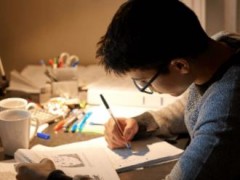对于自己的父母,大胆把爱这个字眼说出来,这样的时尚(一时不能找到更好的词语),好像是在改革开放以后,慢慢流行起来的。不仅是对父母,许多年轻人,对自己比较亲密的关系人,都会随口说出我爱你。这样的时尚,我也觉得很好。但生活的年代不同,对父母爱的表达方式也有所不同。那个年代,人们都比较含蓄。对父母的爱,主要都落实于尽忠尽孝。
其实,爱说不说出来,真的不太重要。人类感情的表达,非常丰富。心灵相通,举手投足,都会心领神会。无缘之人,总是心照不宣,,彼此之间,都心知肚明。这样说,并不是否认把爱父母这样的话,说出来就不好。我主要强调的是,真正的爱,应该是说的少,做的多。
爱父母,就要关心他们的冷暖。在他们絮絮唠叨时,静静地聆听;在他们寂寞孤独的时,陪他们说说话。特别是年轻人,出门在外,父母有电话,接通之后,如果有空,能够耐心听他们诉说就好。急急忙忙打断他们,说上一千句"我爱你们",那样都会使他们感到失落。
其实,这个世界上最疼爱我们的人,就是父母。他们毕生的愿望也是希望我们过得好。爱他们,就把他们放在心里,时时关心吧!
很爱自己的父母,说不出“爸妈我爱你们”这句话,很正常。因为有的人把爱深藏在内心,践于行动上。而有的人没有行动上的爱,也没把对父母的爱放在心上,只是在嘴上甜甜的叫着。真正的爱自己的父母,是关心他们的身体健康,把他们的生日铭记在心。无论你走得多远,时刻牵挂他们。当父母生日时,无论你多远给他们送上一个小小的礼物祝福、或者一句温暖的话,父母就会感受到快乐。这样,比一千句一万句“爹妈我爱你们”要真实得多,这样,也是从内心和行动在说:爹妈我爱你们。说不出来“爹妈我爱你们”说明你用心在做、用心在说,也很正常。
"I love you" might be one of the most important combinations of three words in the English language. It's the signal that a romantic relationship is serious, an indication of closeness for a sibling, parent, or child, and a constant refrain for pop songs。
I love you可能是英语中三个词组成的最重要的一句话了。它是认真对待恋爱关系的标志,它是兄弟姐妹、父母或孩子之间亲密程度的象征,它也是流行歌曲副歌部分的常见内容。
In Mandarin, "I love you" translates as “我爱你” (Wo ai ni), but the way it's used in China might be a little different, and Chinese state media is wondering why。
I love you译为中文是“我爱你”,但是这句话在中国的用法可能有点儿不同,中国的官方媒体也想知道原因。
The Global Times reports that two online videos showing children telling their parents "I love you" have gone viral in China. The first, filmed by an Anhui TV station, shows a number of college students telling their parents they love them. The response are mixed. "Are you drunk?" asked one parent. In another similar video, shot by a Shanxi TV station, a father responded even more bluntly — "I am going to a meeting, so cut the crap."
《环球时报》报道,网上两个记录孩子告诉父母“我爱你”的视频在中国火了起来。第一个视频是由安徽卫视录制的,在视频里一群大学生告诉父母自己爱他们。父母们的反应各不相同。“你喝醉了吗?”一位家长[微博]问。另一个类似的视频是山西卫视录制的,有一名父亲的反应就更不客气了——“我要去开会去了,废话少说。”
Even the positive reactions make it clear that the words are expressed rarely: "I am so happy you called to say that, it is the happiest thing that happened to me in 2014," one parent answered。
即使是正面的回应也清楚地表明这句话用得很少:“我很高兴你打电话说这句话,这是我2014年最开心的一件事了。” 有个家长这样回答。
Why don't Chinese families use those words? Theories revolve around the nature of Confucian teaching. "The parents' responses show that many Chinese are not good at expressing positive emotions," Xia Xueluan, a sociologist from Peking University, told the Global Times. "They are used to educating children with negative language."
为什么中国家庭不说这句话呢?普遍的观点认为是受到儒家思想的影响。“父母们的反应表明大部分的中国人不擅长表达积极的情感,” 北京大学社会学家夏学銮说:“他们习惯用负面的语言来教育孩子。”
This isn't the first time that China has done some soul-searching about familial love — last year China Daily asked a cross-section of people if they said 'I love you' to their parents, spou




